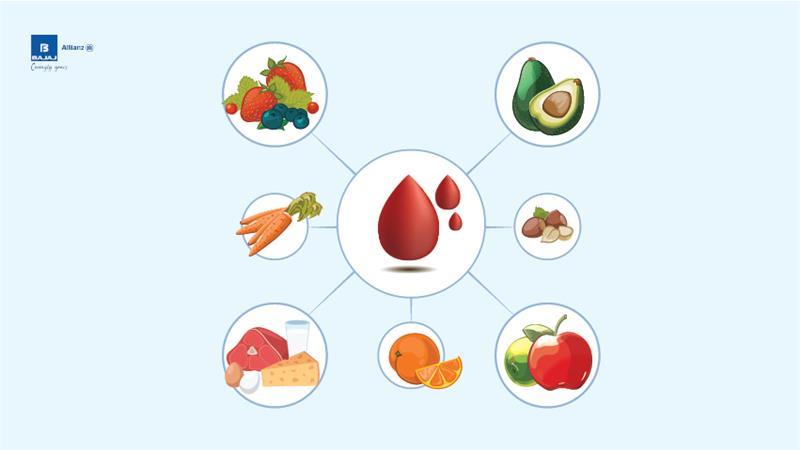High Blood Protein: Definition, Symptoms and Causes

It is not uncommon to think of serious illnesses like cancer or stroke when thinking about health insurance. In the prime of their lives, many people don’t prioritize health insurance because they think they won’t need it. There are many signs that your body will give you, both big and small. These can be a warning sign before it becomes ill with cancer or other serious diseases. It is therefore important to take steps towards your well-being while you’re in good health. Hyperproteinaemia or high blood proteins are conditions that people don’t often think about, or they may not be aware that this condition can lead to cancer. Protein is one of the most important components of a healthy, balanced diet. It is also known to help build muscle. However, too much protein can be harmful. It is the same with protein. How is this disorder caused? Who is affected by it? What are the ways to avoid it and deal with it? Find out.
What is High Blood Protein?
Hyperproteinaemia is a term used to describe an elevated level of protein in the bloodstream. Proteins are vital molecules that play a crucial role in many bodily functions. These include immune system function and the transport of nutrients. They also maintain fluid balance. Proteins are essential for good health but excessive levels of them in the blood may indicate a medical condition.
Common symptoms of high blood protein
You should be able to detect high blood proteins in advance so that you can take the appropriate steps to alleviate your condition. Do not ignore any of these conditions and see your doctor as soon as you can.
- Oedema : Swelling can be caused by an imbalance in fluid distribution, particularly in the extremities.
- Fatigue High blood proteins levels can contribute to fatigue and exhaustion.
- Unexplained Weight Gain: Rapid loss of weight without a cause can be a sign of high blood proteins.
- Dehydration An excess of protein in the blood can lead to dehydration as the body attempts fluid balance.
- Breathing Problems: Fluid accumulation in the lungs can cause respiratory problems.
- Infections that are frequent: High blood proteins can lead to a weakened immune system, increasing susceptibility to infection.
Causes
Here are some of the most common causes of elevated blood protein levels:
- Inflammatory Diseases: Chronic inflammation, such as lupus or rheumatoid, can cause elevated blood proteins.
- Blood Disorders Conditions such as multiple myeloma and Waldenstrom macroglobulinemia may lead to abnormal production of protein.
- Liver and Kidney Diseases: A liver or kidney dysfunction can cause an increase in blood proteins.
- Dehydration An inadequate fluid intake or excessive fluid losses can cause proteins to concentrate in the blood.
- Infections Chronic infection can stimulate the immune system and result in an elevated level of protein.
- Certain Medicines: Certain drugs, such as corticosteroids and certain immune suppressants can cause hyperproteinaemia.
As well as these conditions, elevated levels of blood proteins can also be linked to certain types cancer. Multiple myeloma is one condition that has been linked to elevated blood protein levels. Multiple myeloma, or cancer of the plasma cells (a type of white cell that produces antibodies), is a cancer. A thorough medical examination is required to determine the cause of elevated blood proteins and guide treatment.
What should you do if you have high blood protein?
Your healthcare professional will likely recommend treatment and guidelines if your blood protein level is high. You should follow these guidelines and look after your health. You are expected to follow these steps.
- Medical Assessment: Consult with a healthcare professional to perform a complete examination and diagnostic tests in order to determine the cause.
- Treat The Underlying Conditions: Managing high blood proteins levels requires addressing the underlying condition, whether that’s an inflammatory disease, blood disorder, or organ dysfunction.
- Hydration Adequate fluid intake is necessary to avoid dehydration, and balance the protein levels.
- Medication adjustment: The healthcare provider might adjust the medication dosage or explore alternative treatments if medications cause elevated blood proteins.
- Dietary Adjustments: Some dietary changes may be recommended in order to improve overall health or manage protein levels.
- Regular monitoring: It is important to monitor blood protein levels continuously in order to track treatment progress and make necessary adjustments.
Regular health checks can help you detect any potential health problems in their early stages. Consider getting the right clothing. Health Insurance policy. If you want to cover your family, then consider a family floater plan. You can check online to get an idea of premiums for family and individual floater plans. Calculator for health insurance . Health insurance is not intended to be a long-term policy. It is important to ensure you are able to afford your health insurance. Renew health insurance When policies are about to expire, you should renew them. Ask about the maximum policy duration.




